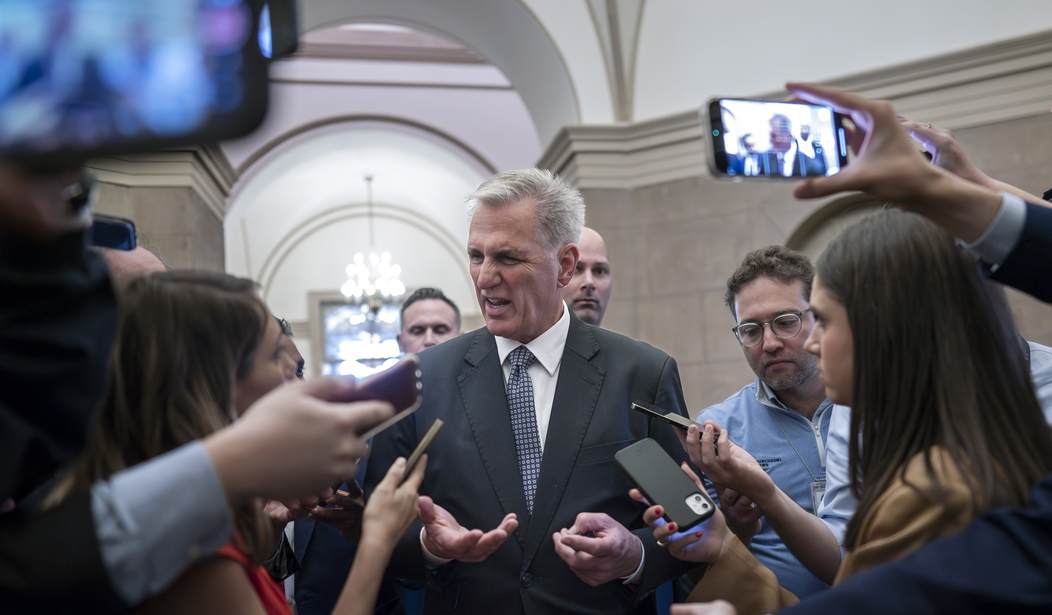It was either the best deal that could have been reached given the political makeup of the House, Senate and White House, or it was a bad deal that might have been much better had Speaker Kevin McCarthy and House Republicans held out for more.
Kevin Roberts, president of The Heritage Foundation, a conservative Washington, D.C., think tank, is on the side of those who think it could have been made better: "Most fiscally conservative and pro-growth policies contained in the House-passed (bill) were stripped out or diluted. When Americans last gave their representatives in Washington this much support to rein in the government in 2011, Congress signed into law the Budget Control Act, which cut discretionary spending roughly 15 times more than the deal in front of us today. The new agreement essentially leaves untouched Biden's slush fund for 87,000 new IRS agents to audit American families. Additionally, this bill will likely lead to increased overall spending levels next year, giving up on the $132 billion in real upfront cuts promised by (the bill). In exchange, this bill would give the Biden administration and the federal bureaucracy a blank-check debt limit suspension for two years."
On the other side is The Wall Street Journal, which editorialized: "The deal is a significant victory for GOP priorities, in return for raising the debt ceiling that had to be raised anyway. Mr. Biden tried to jam the GOP into a clean debt increase, but Republicans forced him to the table when they passed the Limit, Save, Grow bill. The lesson is that political unity pays."
Recommended
There are some good provisions in the agreement, including capping non-defense spending at $704 billion for fiscal 2024, which is higher than Republicans said they wanted when they proposed a return to 2022 spending levels. "Clawing back" unspent COVID-19 funds is helpful, but will members find a way to spend it on other things instead of applying it to debt reduction? I am doubtful. There are work requirements for some able-bodied people now receiving food assistance.
Sen. Ted Cruz, R-Texas, mocked the deal and Speaker McCarthy's claim that the agreement "did not have one thing for Democrats." Cruz said "There are $4 trillion" things in the deal for Democrats. He was likely referring to an estimated figure of the amount the debt has to increase in order for the country to extend borrowing for two years. Reuters reported the deal lifts the cap by $4 trillion.
As mentioned many times in this column, the federal government does not suffer from a lack of revenue; it suffers from a lack of discipline. It spends more than it takes in, but keeps asking for more. How many times do we have to hear from Democrats that "the rich" aren't paying their "fair share"? Why shouldn't that be turned around and they be forced to defend their wasteful spending and refusal to reform entitlement programs?
The agreement is likely to be changed by the time it reaches the president's desk, if it gets there in time to ward off a default, which itself is a construct that needs to be reformed. The debt ceiling isn't a ceiling. It is an open roof with the sky being the limit for politicians to spend more.
Maybe the agreement is a first step and maybe more steps toward fiscal responsibility will be taken should a Republicans win the White House and a congressional majority in the next election.
Let's not forget, though, that Republicans don't have clean hands when it comes to spending. As The Wall Street Journal editorial reminds, Donald Trump "joined Mr. Biden in attacking entitlement reform."
It's not yet a done deal. Plenty more could happen before the measure is approved, or not. Whether approved in the current or another form, given past scenarios it is more likely to benefit the politicians and their careers than a majority of overburdened and fed-up taxpayers.

























Join the conversation as a VIP Member